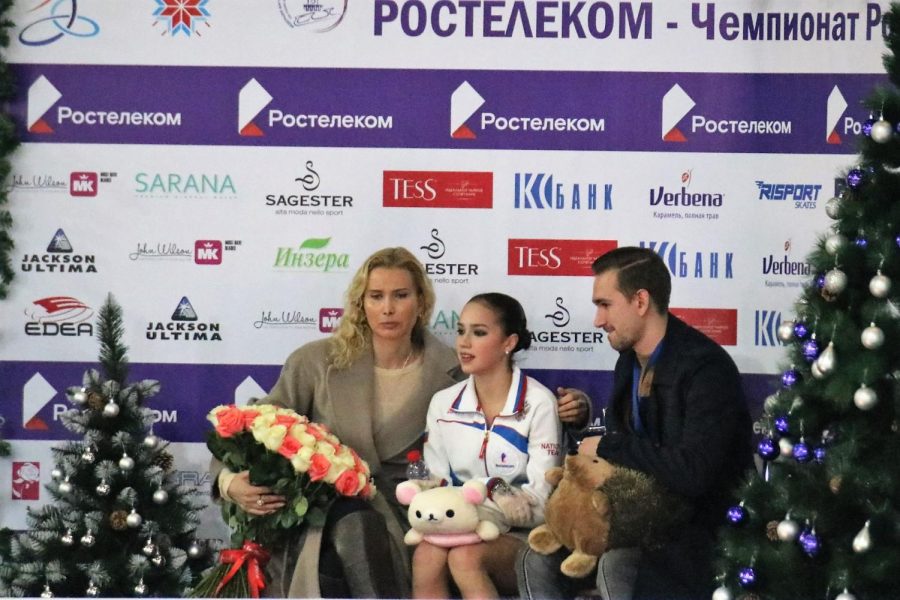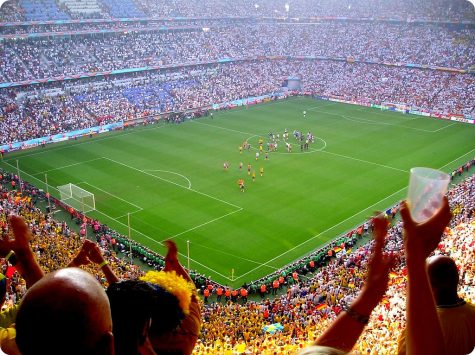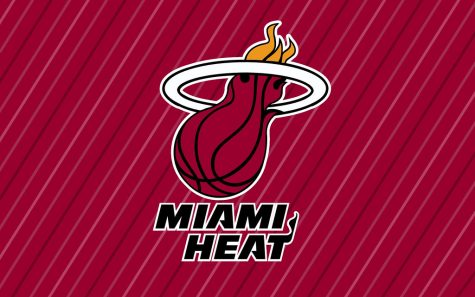Russian ban from figure skating will have effects felt for years to come
By Luu – Own work, CC BY-SA 4.0, https://commons.wikimedia.org/w/index.php?curid=75874029
Russian figure skater Alina Zagitova at the 2018 World figure skating Championships placed 7th in the free program and 2nd in the short program.
As a result of Russia’s invasion of Ukraine, the International Skating Union (ISU) banned all Russian and Belarusian skaters from competing at the world figure skating championships in the latest sanctions. Despite the Russian’s absence from the recently concluded competition, this ban could have an impact on the next few years of figure skating.
The world figure skating championships are usually held in March, and this year was held almost a month after the Olympics games. However, the world championships felt empty and excitement for the huge event felt like it wasn’t there this year.
The bigger and more popular names in figure skating decided to skip this event. The winners of the 2022 medal in pairs, Sui Wenjing and Han Cong, announced their withdrawal from the competition. Nathan Chen, 2022 gold medalist skipped the event because of an injury. The 2014 and 2018 Olympic champion, Yuzuru Hanyu, dismissed himself from the event due to a sprained ankle. Additionally, a significant number of Chinese skaters will also not be partaking in the competition for unknown reasons.
Absences such as these are normally a part of post-Olympic aftermath, however, with the Russian invasion of Ukraine Russian, skaters are also absent from the event. The exclusion of Russia will be felt because they dominate in the figure skating world. At the Beijing Olympics Russian pair skaters placed in the top five. In the women’s skate, Russian skater Anna Shcherbakova placed first and Sasha Alexandra Trusova placed second on the podium.
Despite some of the bigger names not competing, the ban of the Russians can have a lasting impact for the future of figure skating. If the Russians are allowed to compete at international events next year, they would only be allowed one entrant per skating discipline instead of three for each skating event, meaning the Russians have to earn a full roster for when the Olympics arrive again. However, if Russia is still banned from international events for more than one season, it will be extremely difficult to compete at the 2026 Olympics with a full roster.
Even though this seems like a bad thing, other skaters would be given the chance for increased exposure and competitive opportunities. Look at Beijing bronze medalist Sakamoto Kaori who won the figure skating world championships a few weeks ago. Had the Russians been present in the competition, she probably wouldn’t have made it to the top five. Additionally, slots for next year’s world championships will be given to other skaters which would most likely have been taken by the Russians. What this means is that different countries will get more exposure and opportunities in the next few years.
The effects of this ban also extend beyond the athletes of figure skating and major events. The ISU is holding its congress in June to discuss and hear different proposals. One of these proposals is from the Norwegian federation which wants to raise the minimum for senior skaters from 15 to 17, a discussion that has been in the spotlight for some time, especially after the doping situation with Kamila Valivea at the 2022 Olympics. This proposal faced heavy resistance from the Russians mainly because Russia is known for sending young skaters to major figure skating events.
Even though Russians have opened the door for women’s figure skating, including bringing quadruple jumps to women’s skating, they come with major drawbacks such as serious injuries which often force early retirement. This is mainly due to the fact that these skaters are under the Russian coach Eteri Tutberidze who is known for teaching poor technique.
Tutberidze trained skaters are some of the best skaters and dominate in competition but have a history of short lived careers due to issues like eating disorders and injuries.
The Norwegian federation president, Mona Adolfsen, stated that the main goal was to prevent athletes from having to retire early due to career-ending injuries.
Additionally, if Russians aren’t present at the June congress due to their ban, they won’t be able to put candidates up for ISU (International Skating Union) positions which is something that will last years after Russia isn’t banned anymore.
Many figure skating fans are disappointed with the exclusion of Russian athletes given that they are so primarily dominant in the sport, so their absence is felt. However, their ban from skating also increases the legitimacy of figure skating events. Kamila Valieva being caught doping at the 2022 Olympics confirmed doping rumors surrounding Russian figure skating because many believe Kamilia wasn’t the only one doping but probably the only one caught.
However, without the Russians, we can have the chance to see figure skating in a different light which could be for the better. The ban is greatly impacting the figure skating world right now with Kaori Sakamoto winning the world championships, something that would never have happened if the Russians were present.





